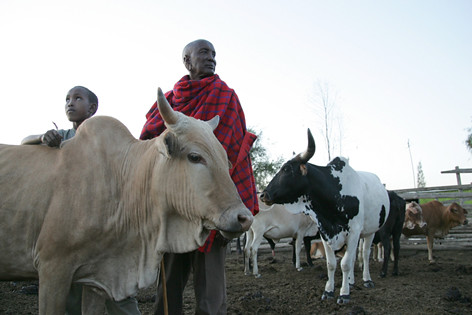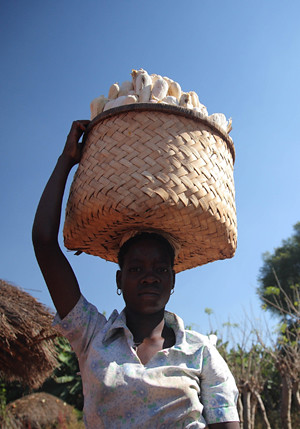The first-ever global conference on women in agriculture was held on 13-15 March 2012 in New Delhi, India. The conference gathered women farmers, researchers, policymakers and other stakeholders from all over the world to discuss current and emerging gender-related issues in agriculture and research, as well as derive lessons for future sustainable, gender-sensitive development.
The International Livestock Research Institute (ILRI) was represented at the conference by Jemimah Njuki, leader of ILRI's Poverty, Gender and Impact team.
Njuki's presentation, Linking women farmers to markets: Patterns of market participation, decision making and intra-household income management, explored various approaches to linking smallholder women to markets as a critical pathway towards their economic empowerment.
View the presentation below.
The International Livestock Research Institute (ILRI) was represented at the conference by Jemimah Njuki, leader of ILRI's Poverty, Gender and Impact team.
Njuki's presentation, Linking women farmers to markets: Patterns of market participation, decision making and intra-household income management, explored various approaches to linking smallholder women to markets as a critical pathway towards their economic empowerment.
View the presentation below.
Linking farmers to markets: Patterns of market participation, decision making and intra-household income management
View more presentations from ILRI


